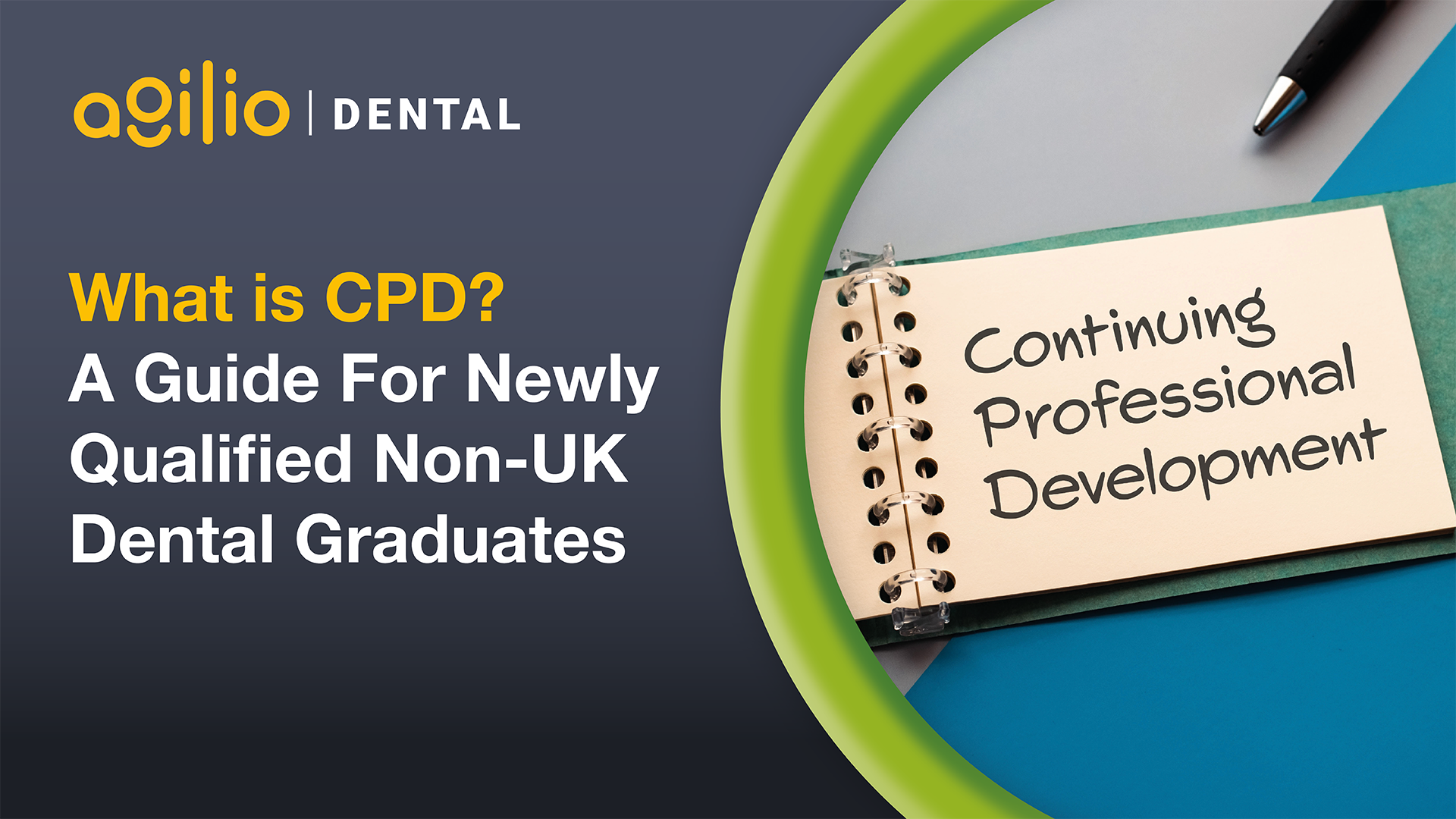As a newly qualified dentist from outside the UK, stepping into clinical practice within the NHS
can feel both exciting and overwhelming. One term you’ll hear frequently is CPD—short for
Continuing Professional Development. If you’ve been asked to complete CPD courses as part of
the requirements for obtaining your NHS Dental Performer Number, you might be wondering:
What exactly is CPD, and why is it important?
Let me break it down.
What is CPD?
Continuing Professional Development (CPD) refers to the ongoing process of learning and
development that helps dental professionals maintain and enhance their knowledge, skills, and
clinical performance throughout their careers. It’s not just about ticking boxes—it’s about
ensuring you remain a competent, safe, and effective clinician who delivers high-quality care to
patients.
In dentistry, lifelong learning isn’t optional—it’s mandatory.
From structured learning to self-directed growth
During dental school, your education followed a structured curriculum with clear objectives and
assessments. Now that you’ve graduated, the responsibility for your learning shifts to you.
You’re expected to reflect on your own practice, identify areas for growth, and choose CPD
activities that suit your clinical environment, patient base, and career goals.
There’s no single list of mandatory courses for all dentists. Instead, CPD is highly personalised,
giving you the flexibility to focus on topics most relevant to your role. However, some areas are
commonly recommended—especially for new NHS performers—including:
- Medical emergencies
- Disinfection and decontamination
- Radiography and radiation protection
- Safeguarding of children and vulnerable adults
- Legal and ethical issues
- Record keeping and communication
These topics help build a solid foundation for safe, ethical NHS practice.
CPD requirements in the UK
The General Dental Council (GDC) oversees CPD requirements in the UK. As a dentist, you
must complete a minimum number of verifiable CPD hours within each five-year cycle. You’re
also required to create a Personal Development Plan (PDP) and keep evidence of your
learning.
You can find full guidance on CPD standards and requirements on the GDC website.
Navigating the CPD landscape as an international graduate
The reality is, you may encounter clinical systems, protocols, or legal frameworks in the UK that
you’ve never come across before. That’s normal—and CPD is your tool to bridge that gap.
Whether it’s learning about clinical topics, understanding UK safeguarding policies, or refining
your communication with a multidisciplinary team, targeted CPD courses can help you transition
confidently into UK practice.
As a clinical board member for Agilio, I’m passionate about making relevant CPD accessible to
all dentists—especially those who, like me, have trained internationally. Our goal is to support
you on your journey so that you not only meet regulatory requirements, but also thrive in your
new professional environment.
If you’re unsure where to start with your CPD or need help identifying areas for development,
Agilio’s CPD platform iLearn offers a wide range of trusted courses designed to meet the real-world
needs of dentists at every stage of their career.
Welcome to UK dentistry—your learning journey is just beginning.


